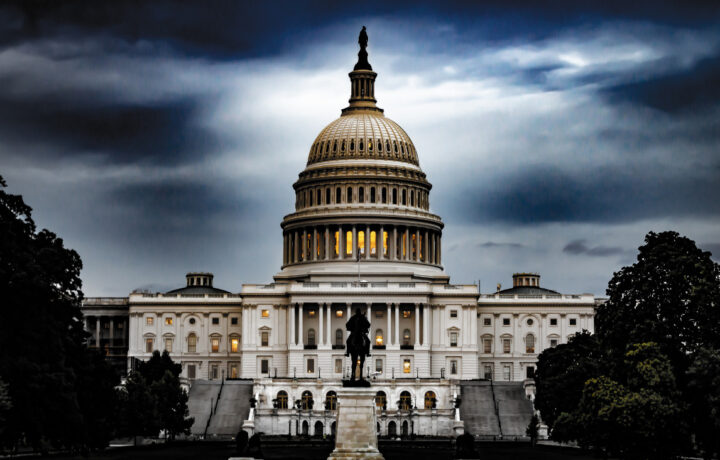The divide in Washington means that a government shutdown is possible later this year. Neither the passage of the One Big, Beautiful Bill Act nor the $9 billion rescissions package has helped mend the rift. Congress may struggle to pass the next spending rescissions.
Senate Democratic Leader Chuck Schumer (N.Y.) also warned that it won’t be “business as usual,” and a senior Republican on the Senate Appropriations Committee told The Hill that the chances of a government shutdown this fall stand at “50-50.”
The first deadline is September 30, and by that point, Congress must pass appropriations bills or a continuing resolution to avoid a lapse in funding. As recent negotiations have been challenging, there remains a very real possibility that a government shutdown could occur on October 1.
The government last avoided a shutdown in March.
Harder To Avoid This Time
Republican lawmakers in the House of Representatives, where they hold a slim majority, are showing little interest in working with Democrats. However, in the Senate, where 60 votes are needed to move forward, Republicans have expressed some willingness to reach across the aisle.
As Politico.com reported, Senate Minority Leader Chuck Schumer “took intense heat from across his party” after he helped pass the Republicans’ government funding extension in March. However, at least two Republicans could further complicate the situation.
Appropriations Chair Susan Collins of Maine and another senior appropriator, Alaska Sen. Lisa Murkowski, already voted against Trump’s rescissions package.
This suggests a confrontation may be ahead.
Government Workers Will be Affected
If the government shuts down, most federal employees who aren’t deemed “essential” will be furloughed, meaning they will be placed on unpaid leave and may even be prohibited from working. Workers who are considered essential, including those in law enforcement, air traffic control, and specific healthcare roles, will continue to work. Still, they will not receive paychecks until the shutdown ends.
The good news is that, under a 2019 law, furloughed employees and those who continued to work will receive back pay once the shutdown concludes; however, this still means uncertainty for those with rent, mortgages, or car payments.
How the Military is Impacted
A government shutdown will impact the military, potentially affecting readiness and even national security. Active-duty military personnel will also continue to work, while roughly half of the civilian military employees will continue to work, with the rest being furloughed.
Military medical services and even dental care will remain available, but elective surgeries and some procedures will be put on hold. Likewise, childcare facilities, as well as morale, welfare, and recreation (MWR), may be shuttered depending on the specific military base and the source(s) of funding. Moreover, military grocery stores (commissaries) may remain open, but only for limited hours and in specific locations, and this will continue until funds are exhausted.
There remains a very real concern that these limitations can affect readiness, particularly the morale of service members. Shutdowns are likely to delay some training but more directly impact recruitment efforts. That latter fact could undo years of efforts to address shortfalls.
Likewise, a shutdown is almost certain to reduce morale among service members and their families, as some could face financial hardship and uncertainty. As with other federal employees, service members will receive back pay; however, this can often be too little and too late for those who are asked to make significant sacrifices for the country.
What a Shutdown Means for Contractors
During a government shutdown, there are likely to be delays in contract awards, as well as in payments and approvals. In addition, contractors may have limited access to government facilities, and obtaining necessary approvals for existing contracts can be challenging.
Modifications and option renewals could be put on hold, disrupting the timeline for programs, while payments for work performed can be delayed, which could impact contractor cash flow. In some extreme cases, existing contracts can be terminated due to a shutdown.
Some contracts, notably those deemed essential, may be declared “excepted” and will be unaffected by a shutdown. Additionally, contractors may need to continue, even if payments are delayed.
What Isn’t Impacted
There are still some parts of the government that can be expected to function as usual during a shutdown. That first includes the United States Postal Service, which is an independent agency and not funded by tax dollars. Likewise, the Veterans Administration will continue to process benefits, including compensation, pension, education, and housing.
Social Security and SSI benefits are “generally unaffected” by a government shutdown, and recipients can expect to receive their checks. Yet, the Social Security Administration (SSA) may provide only limited services, and benefit verification may be delayed or suspended. Due to furloughs, customer service wait times could increase significantly.
Passport applications are being processed, but the process may be slower than normal due to staff shortages.
The biggest loser may be the American economy. It was estimated that the 2018-2019 shutdown resulted in a loss of $11 billion to the economy.




